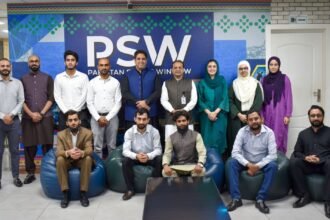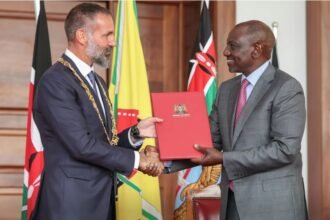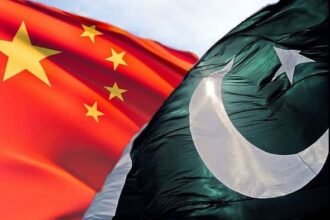
By Abdul Wahid
Pakistan’s proposal to nominate Donald Trump for the 2026 Nobel Peace Prize may raise questions globally. But this suggestion is based on practical thinking recognizing the times when Trump helped reduce tensions and avoided wars in sensitive parts of the world.
Over the past decade, the world has faced many dangerous situations where war seemed close. In some of these, Trump played a key role in reducing tensions and promoting peace, even if his methods were unconventional. The key reason that Pakistan supports Trump’s nomination is his role in reducing tensions between India and Pakistan the two nuclear-armed neighbors. During critical moments of high tension, when war seemed dangerously close, Trump’s informal and direct style of diplomacy helped calm the situation. His communication with both governments acted as a brake against escalation, especially during incidents that could have led to conflict.
Pakistan acknowledges that a nuclear conflict is not just a possibility but a real and ongoing risk in South Asia. If Trump’s actions helped prevent such a disaster, even in unconventional ways, then recognizing those efforts is not just justified, it is necessary.
Pakistan’s decision to support the nomination of U.S. President Donald Trump for the 2026 Nobel Peace Prize is not merely symbolic it is a calculated strategic move. Pakistan believes that a personality like Trump, with global influence and a bold diplomatic approach, can play a vital role in fostering peace in regions where tensions continue to escalate. Trump has already demonstrated his ability to intervene at critical moments. One notable example is his role in preventing a potential war between Israel and Iran, a conflict that had reached a dangerously volatile stage in the Middle East. Through backdoor diplomacy and assertive messaging, Trump helped de-escalate a situation that could have spiraled into a regional catastrophe.
With this background, Pakistan sees Trump not just as a past peace contributor but as a potential future instrument of global stability. By endorsing his candidacy, Pakistan is encouraging him to stay engaged in peacebuilding efforts across the world.
During his presidency, Donald Trump also contributed to peace in Africa, particularly in volatile regions like Rwanda and the Democratic Republic of the Congo (DRC). These areas have long faced conflict due to armed groups and cross-border tensions. While Trump did not engage directly, his administration quietly supported peace dialogues, encouraged regional stability through diplomatic pressure and imposed sanctions on rebel leaders. His support for African Union-led solutions helped prevent further escalation. Though less publicized, these behind-the-scenes efforts reflect a broader contribution to global peace.
Among Donald Trump’s most impactful diplomatic achievements was his administration’s role in brokering the Afghanistan Peace Deal, formally known as the Doha Agreement, signed in February 2020. This agreement between the United States and the Taliban marked a historic turning point after nearly 20 years of continuous warfare. Under Trump’s leadership, the U.S. adopted a bold new approach having direct engagement with the Taliban in Qatar, bypassing traditional intermediaries. The objective was clear, caused to end America’s longest war through a structured withdrawal plan. In this context, Trump’s contribution to ending the Afghan conflict adds significant weight to Pakistan’s support for his Nobel Peace Prize nomination. It is a reminder that true peace is often achieved not through power, but through dialogue.
The nomination of Donald Trump for the Nobel Peace Prize marked a turning point in his global outlook, motivating him to actively pursue peace in regions plagued by long-standing conflicts. Recognizing the weight of such an honor, Trump began engaging more deliberately in diplomatic efforts, particularly focusing on de-escalating tensions between Israel and Iran, a conflict that was dangerously close to erupting into full-scale war. His strategic approach, backchannel diplomacy and regional alliance-building helped to avert a major regional conflict in the Middle East. This shift in his mindset, influenced by the recognition of his potential as a peace facilitator, has opened a new chapter in his international role as a promoter of stability.
Another important and groundbreaking initiative under Trump’s leadership was breaking the diplomatic deadlock between Israel and several Arab nations, which climaxed in the signing of the Abraham Accords in 2020. These historic agreements normalized relations between Israel and the United Arab Emirates (UAE), Bahrain, Sudan and Morocco. The accords aimed to establish full diplomatic ties through the opening of embassies, direct flights, enhanced trade, technological cooperation and tourism. More than just formal agreements, the Abraham Accords laid the foundation for strategic alliances, boosted regional investment and innovation and significantly improved interconnectivity across the Middle East. Most notably, they transformed the long-standing Arab-Israeli narrative from one of hostility to one of sensible partnership.
In the ongoing crisis between Israel and Gaza, where innocent lives continue to suffer, Donald Trump’s potential role as a global peace influencer becomes more relevant than ever. At a time when many Muslim countries remain diplomatically passive or divided, Trump stands out as a figure with both the influence and willingness to pressure Israel toward a ceasefire. Given his past success in securing the Abraham Accords and his close ties with Israeli leadership, he is perhaps the only global figure capable of persuading Israel to halt its military operations and return to the path of negotiation. While peace in Palestine remains a complex challenge, Trump’s intervention, if aligned with justice and diplomacy, could help end the violence and bring much-needed relief to Gaza.
Pakistan’s endorsement of Donald Trump for the Nobel Peace Prize is not a random or emotional gesture but a well-calculated, strategic decision shaped by deep military and diplomatic insight. Guided by the timely analysis of a Senior Field Marshal, Political Leadership and the broader security establishment, Pakistan recognized Trump as a figure who, despite his controversial persona, has played a role in preventing large-scale conflicts, particularly in hot-blooded regions like South Asia and the Middle East. In a world on edge, where the threat of war often looms larger than peace, acknowledging even unconventional contributors becomes essential. The Nobel Peace Prize is not about popularity; it is about results. If Trump’s actions have helped avert wars and promote dialogue, then his candidacy deserves serious global attention not because of who he is, but because of what he may have prevented.
The Writer is Senior Manager Administration in Pak China Investment Company Limited (a_waheed789@yahoo.com)










